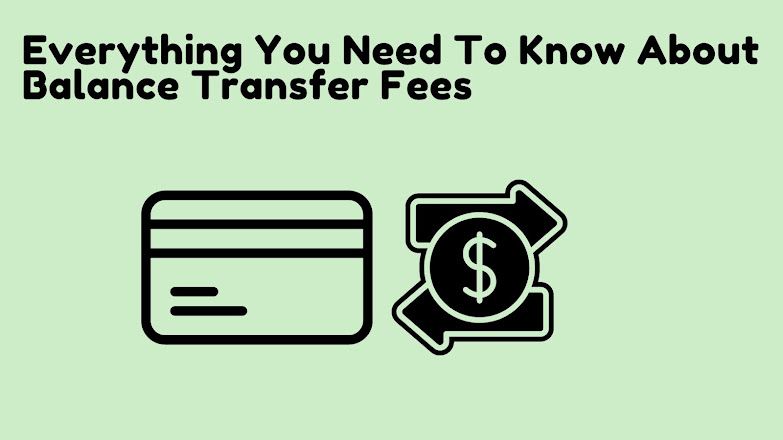Everything You Need To Know About Balance Transfer Fees
Credit cards are useful in managing finances as they offer rewards and convenience for your expenditures. However, if you hold a balance on your credit card, interest charges can accumulate rapidly. One effective approach to manage your credit card debt is by utilizing a balance transfer. This article will provide insights into balance transfer fees in India.

What is a Balance Transfer?
A balance transfer refers to transferring the outstanding balance from one credit card to another. The main motive behind
opting for a balance transfer is to avail the benefits of a lower interest rate offered by the new credit card. This can aid
in reducing interest charges and accelerating the repayment of debt.
What are Balance Transfer Fees?
Balance transfer fees are charges that credit
card companies apply when you transfer your balance from one credit card to
another. The fee is usually a percentage of the balance being transferred,
typically ranging from 1% to 5%. For example, if you transfer a balance of Rs.
50,000 to a new credit card with a 3% balance transfer fee, you will have to
pay Rs. 1,500 as a fee.
Why Do Credit Card Companies Charge Balance Transfer Fees?
Credit card companies charge balance transfer
fees to offset the cost of processing the transfer. Additionally, they want to
discourage consumers from constantly transferring balances between credit
cards, which can be costly for them.
How Do Balance Transfer Fees Affect Your Credit Card Debt?
Balance transfer fees can impact your credit
card debt in several ways. First, they increase the total amount you owe, which
can be a burden if you are already struggling with debt. Additionally, they can
reduce the amount you save on interest charges if the fee is too high.
Therefore, it is essential to calculate the fee and compare it with the
potential savings in interest charges before doing a balance transfer.
How to Calculate Balance Transfer Fees?
To calculate balance transfer fees, you need to know the balance transfer fee percentage and the amount you want to transfer. For example, if the balance transfer fee is 3% and you want to transfer a balance of Rs. 50,000, the fee would be Rs. 1,500 (3% of Rs. 50,000).
It is important to note that some credit card
companies offer promotional balance transfer rates with no balance transfer
fees for a limited time. This can be an excellent opportunity to save money on
interest charges and pay off your debt faster.
Tips for Using Balance Transfers
Balance transfers can be an effective tool for managing credit card debt, but it is important to use them wisely. Here are some tips for using balance transfers:
● Look for promotional rates: Many credit card companies offer promotional rates for balance transfers. These rates can be significantly lower than your current interest rate, making it easier to pay off your debt faster.
● Check the transfer fee: Make sure you calculate the balance transfer fee and compare it with the potential savings in interest charges. If the fee is too high, it may not be worth doing a balance transfer.
● Pay on time: Late payments can result in late fees and penalty interest rates. Therefore, it is essential to make your payments on time and avoid adding to your debt.
●
Avoid new purchases: It is best to avoid
making new purchases on the new credit card until you have paid off the
transferred balance. This will help you avoid adding to your debt and
accumulating interest charges.
Read More: How to Avoid the Snowball Effect of Credit Card Debt
Conclusion
Balance transfers can be helpful for managing
credit card debt, but it's essential to know the fees and use them wisely. This
can help you save money on interest charges and pay off your debt faster. If
you're considering a balance transfer, make sure to calculate the fees and
compare them to potential savings before deciding.



Comments
Post a Comment